Will You Lose Your Job to AI? What You Need to Do to Keep It
Artificial Intelligence Disruption is Already Happening
In a world, that is rapidly embracing AI advancements, a pressing concern echoes in the minds of many: Will a robot take my job? As whispers of 'AI take over jobs' grow louder, it's easy to feel a sense of impending doom. Yet, there's a silver lining.
Solutions to Secure Your Job in the AI Revolution
In this guide, we unravel how many jobs are safe careers from automation and the sectors where your innate human perspective is irreplaceable, becoming your safeguard in the job market in the AI age. We're here to equip you with a roadmap for your job safety in this changing landscape and guide you to carve a niche where humans remain invaluable.
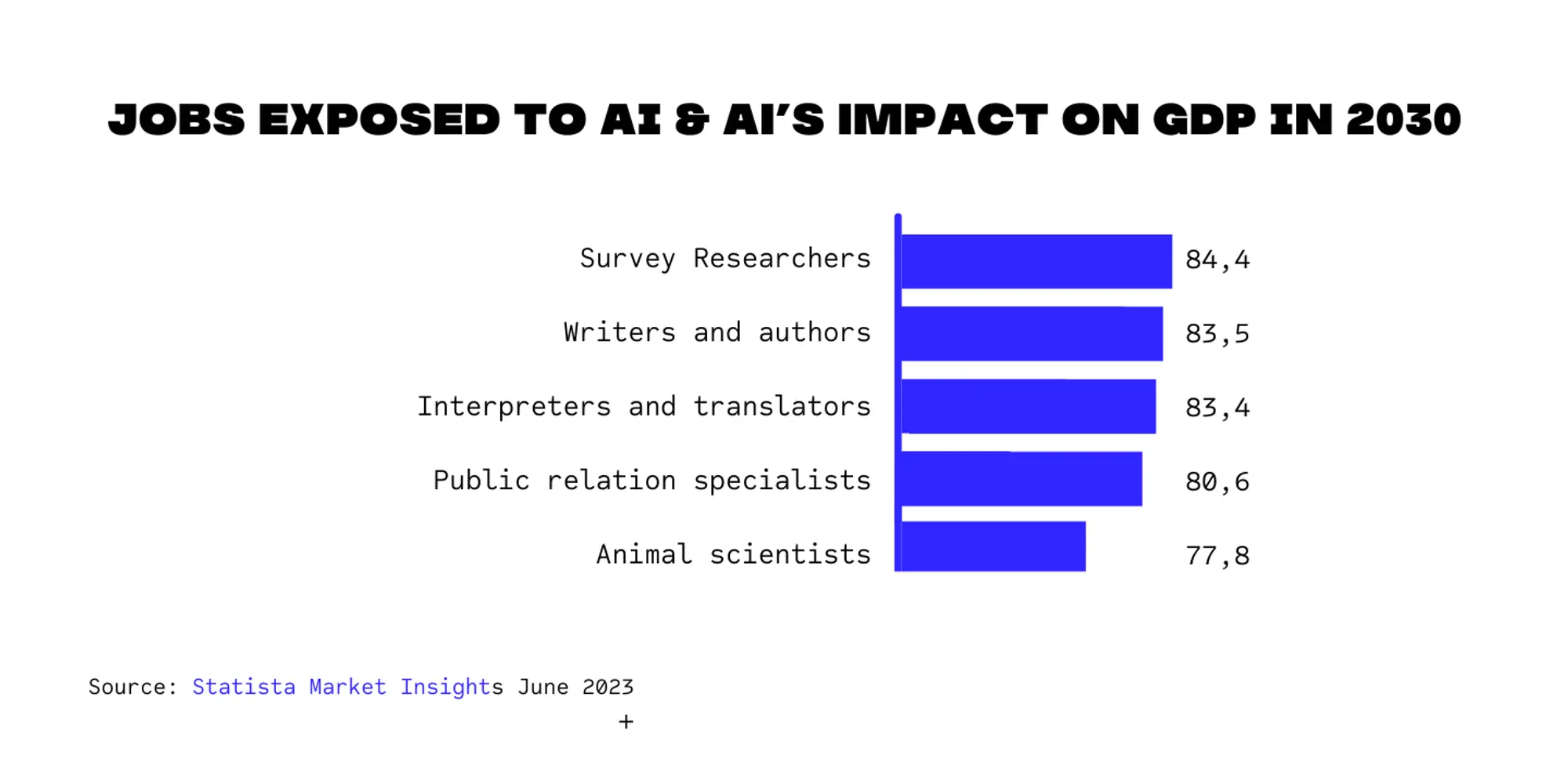
Will AI Take Over Jobs?
I see you at a crossroads in a changing world, where AI could reshape our society. Also, you might be wondering: Will I lose my job to AI? The storm clouds are gathering, and the statistics are staggering:
- An estimated 36 million workers stand to lose their jobs to the AI juggernaut. - A significant 30% of 'boring' and repetitive jobs face replacement by AI systems. - In England alone, 1.5 million people are staring down the barrel of job loss due to automation in the foreseeable future. - Globally, the picture is even grimmer with 375 million jobs at risk to be replaced by AI by 2030. - A staggering 14 to 80 million US jobs are hanging in the balance, threatened by automation.
Will Artificial Intelligence (AI) Replace Human Workers?
From the nurturing corridors of healthcare to the vibrant canvases of the arts, and even into the pulsating heart of the sports world - the siege is relentless. An estimated 36 million workers stand to lose their jobs to AI, a figure that sends ripples of concern across various sectors.
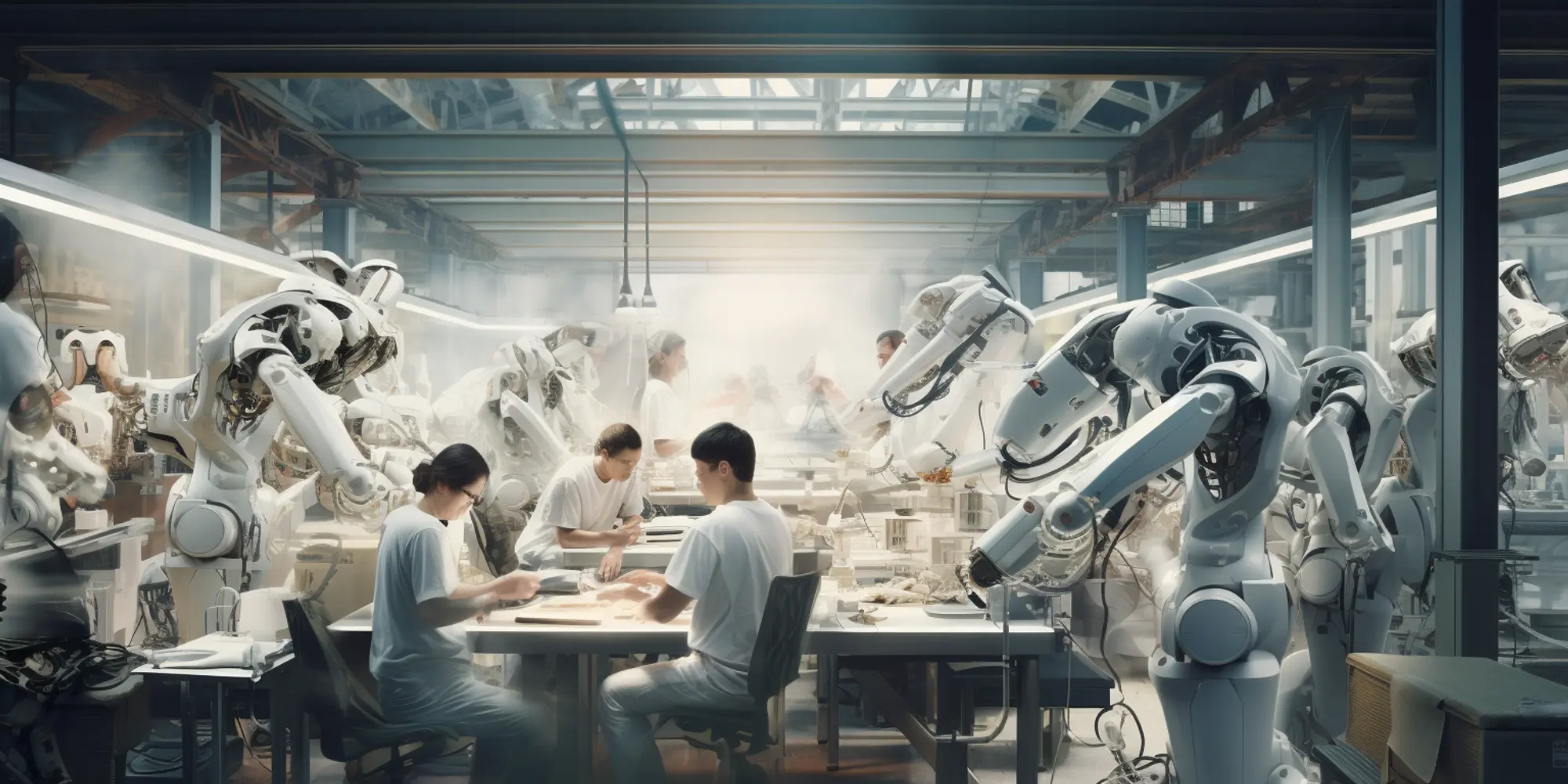
The Vulnerable Frontline: Identifying At-Risk Sectors
Vulnerable people work the hardest in places with routine tasks. These places include offices with the sound of typing, factories with repetitive tasks, and busy transportation routes. These are the jobs that lie in the crosshairs of automation, where the daily grind could soon be handed over to unfeeling robots, proficient in executing tasks with mechanical precision but devoid of any semblance of human connection.
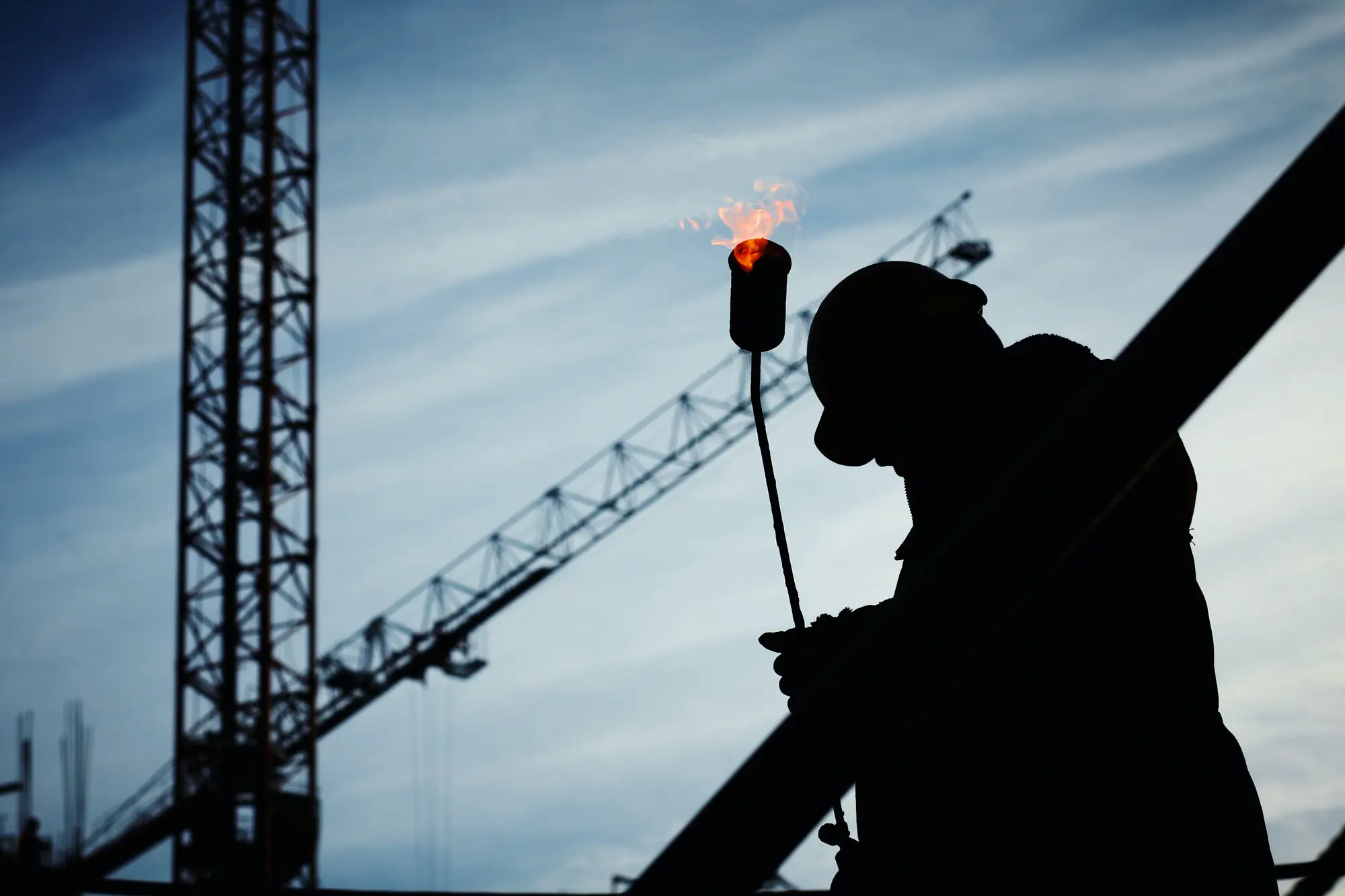
Navigating the Future: Human Ingenuity and Adaptability
As we stand at this critical juncture, it is imperative to foster a culture of adaptability and lifelong learning. The future demands a workforce that is not only technically proficient but also adept at harnessing the unique qualities that set us apart from machines - our capacity for empathy, creativity, and critical thinking.
Collaborative Synergy: The New Paradigm
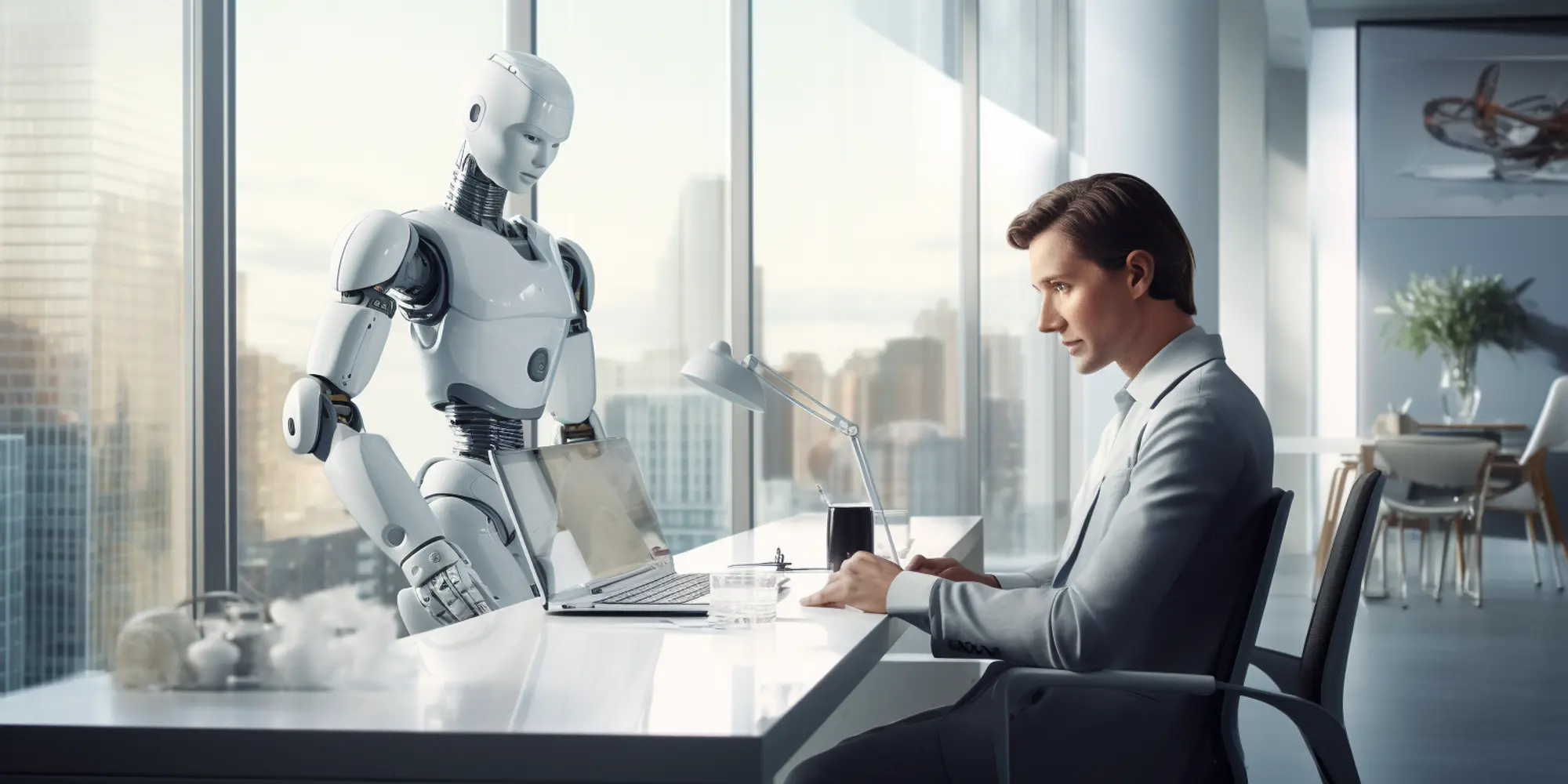
Furthermore, governments and organizations must play a pivotal role in steering the direction of this transition, ensuring that the integration of AI into the workforce is conducted ethically and sustainably. Collaborative efforts between humans and AI should be encouraged, fostering environments where both can work synergistically to achieve greater heights.
In conclusion, while the march of AI seems unstoppable, it is within our grasp to navigate the future successfully, leveraging the strengths of both humans and machines to forge a harmonious and prosperous society.
Industries That Are Safe From AI
In this era where it seems no job is safe from the clutches of AI, I urge you to hold onto hope. You possess something truly special that AI cannot understand and create with a depth of emotion that machines can't emulate.

10 Jobs that AI can't replace
Here is a list of professions that are future-proof and less vulnerable to AI takeover: 1. Mental Health Counselor 2. Social Worker 3. Art Therapist 4. Special Education Teacher 5. Human Resources Manager 6. Creative Director in Advertising 7. Playwright/Novelist 8. Community Outreach Coordinator 9. Geriatric Care Manager 10. Crisis Intervention Specialist
Your Guide to Keep You Safe from being replaced by AI
Now, let's roll up those sleeves and see how skill investment can help you to successfully navigate AI's impact. Here's your game plan.

8 Steps to Keep your job safe from AI replacement
1. Educational Pursuits: Embark on a journey of continuous learning. Utilize platforms like Coursera, Udemy, and edX to acquire new skills and knowledge that are in high demand in the AI age. 2. Hands-On Experience: Get involved in community projects or online platforms where you can gain hands-on experience working with AI tools. 3. Networking and Community Building: Forge connections with professionals in the field. Attend industry conferences and join AI communities. 4. Harness Your Emotional Intelligence: Empathize and connect with others on a profound level. 5. Become a Tech Maestro: Familiarize yourself with the latest AI tools and technologies. 6. Seek Mentorship: Find mentors who can guide you in navigating the complex landscape of AI. 7. Collaborative Projects: Engage in projects where humans and AI work hand in hand. 8. Workshops and Training Programs: Enroll in workshops that focus on nurturing creativity, and problem-solving skills.
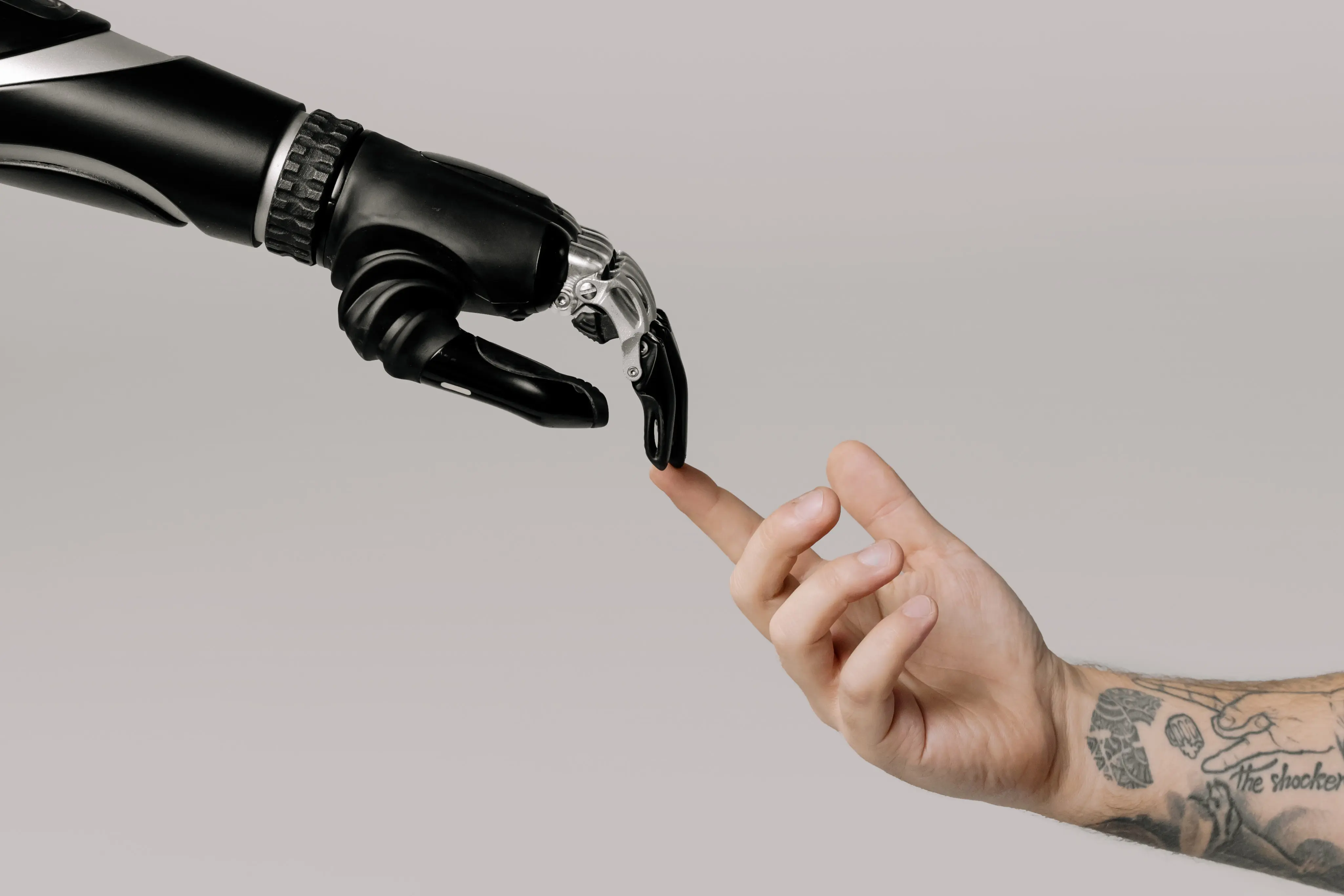
By adopting a proactive approach and embracing the opportunities that AI technology presents, you can carve out a successful career path in the AI-dominated future.
Check out our Midjourney free prompt builder tool: [Midjourney Prompt Builder](/prompt-builder)
See All AI Tools















